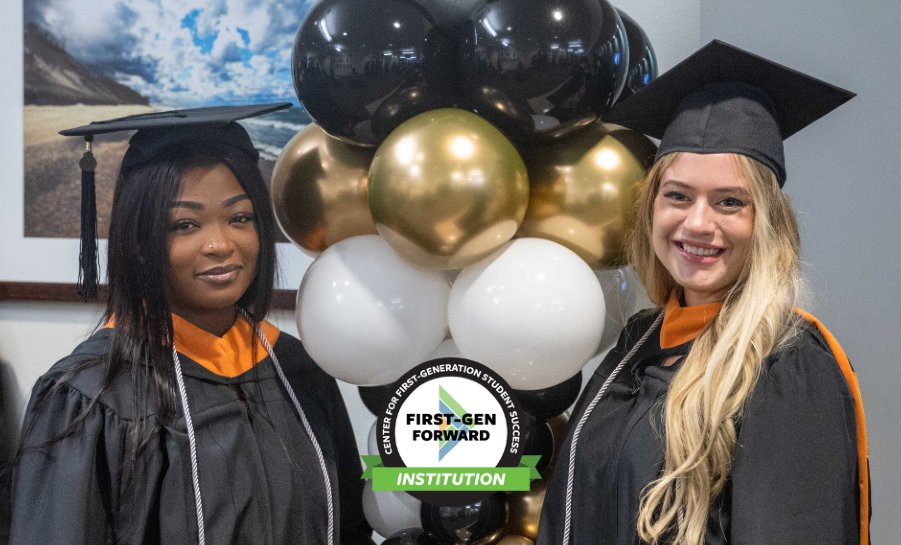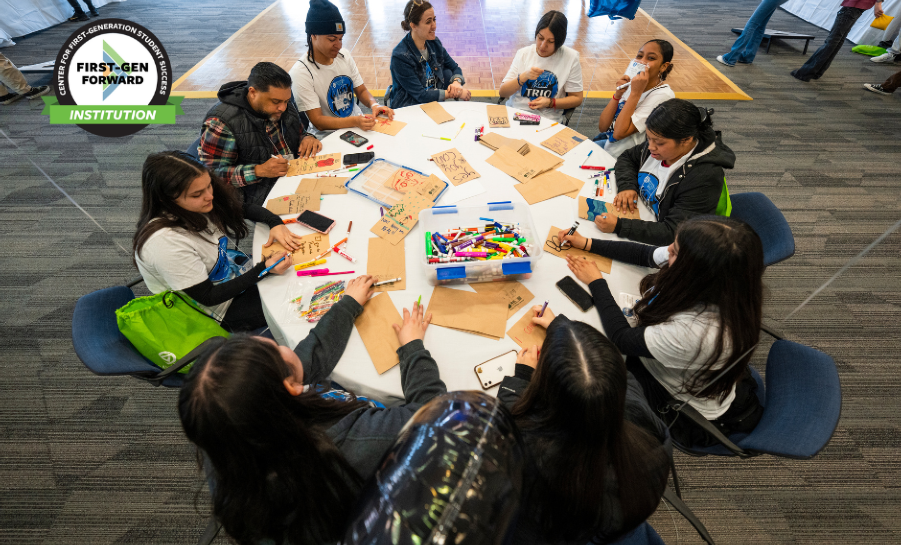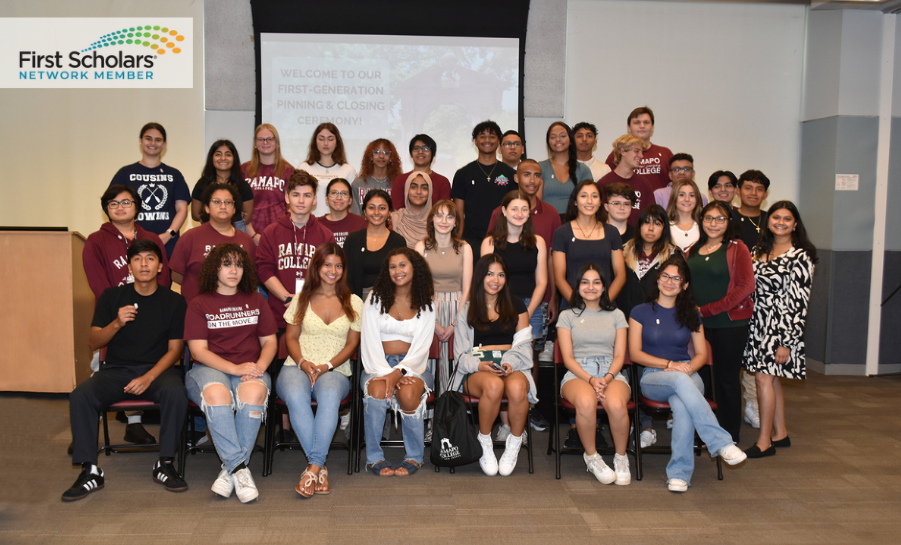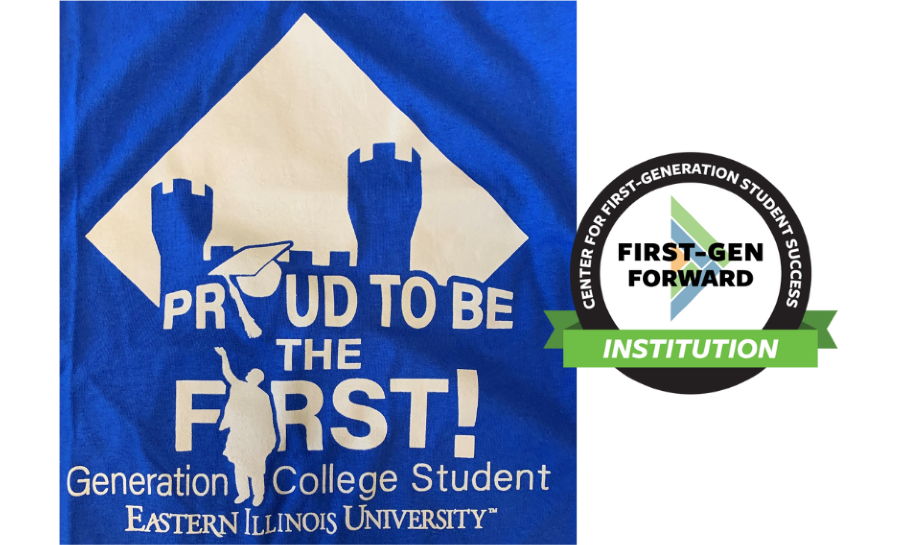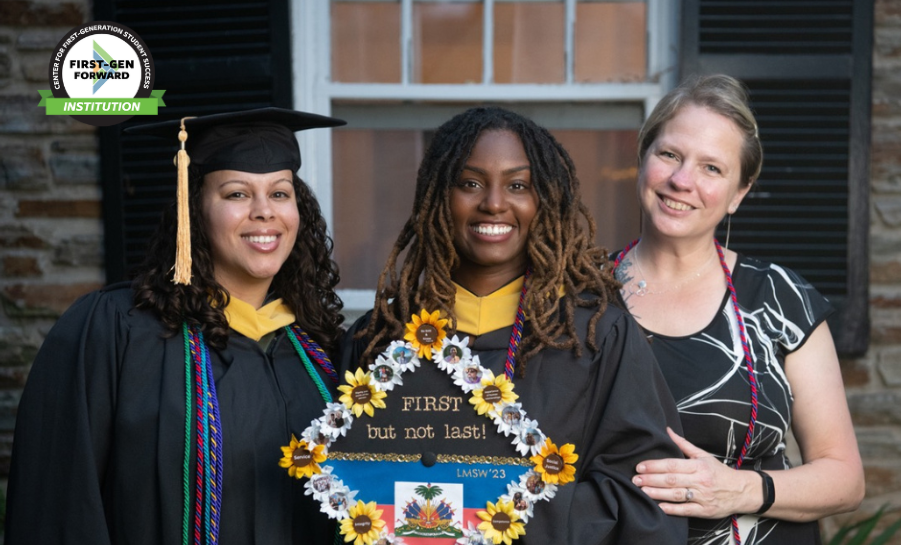Queens University of Charlotte's First-Gen Initiative
Kristina Siarzynski-Ferrer, Queens University of Charlotte / FirstGen Forward / April 04, 2024
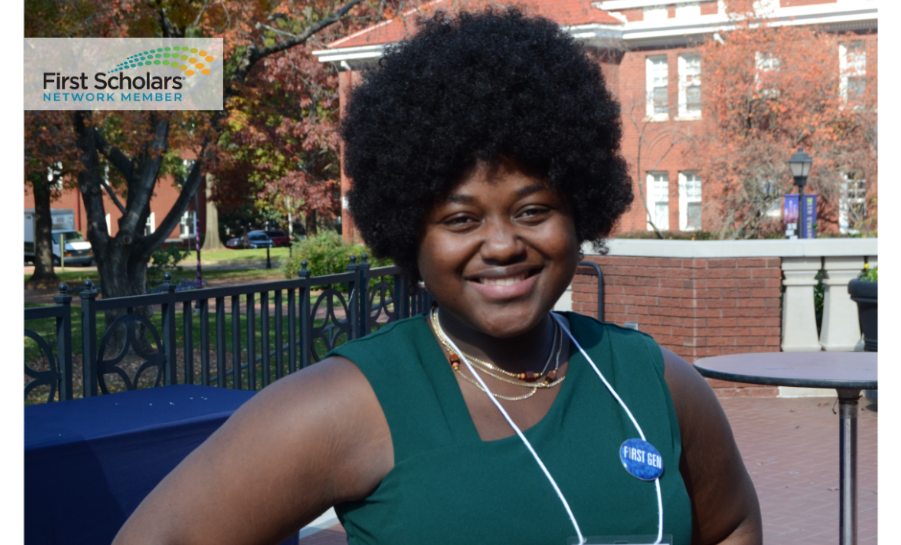
In 2018, I was asked to create initiatives to support the institution’s first-generation student population. This journey began with researching best practices and I was reminded of Tinto’s theory of student persistence that is based on the integration of academic and social factors (Tinto, 1987, 1999). As a higher education professional who identifies as a first-generation college student, I wanted to find others on-campus who shared this experience. Throughout my academic and career journey, I had yet to connect with faculty members, staff, or senior administrators who identified as first-generation or who shared that FAFSA, priority registration, and the hidden curriculum were also unfamiliar to them. My experiences helped propel the route I wanted to take at Queens University of Charlotte, I wanted students to have a connection with faculty or staff who experienced similar barriers.
At Queens University of Charlotte, incoming first-generation students who are first-time, full-time students typically accounted for 25% of the class. However, the percentage of first-generation students who are first-time, full-time students has fluctuated over the years from 35% in the 2017-18 academic year, 25% in the 2019-20 academic year, and the most recent incoming class of 2023 at 31.8%. Queens University students are defined as first-generation if neither of their parents completed a bachelor’s degree.
The Importance of Partnerships
With about 10 other faculty and staff identifying as first-gen across the institution, we formed the First-Gen Initiative. Our mission is to build and maintain a network of faculty, staff, and students who work collaboratively to support the success of first-generation college students. Gaining partners across campus has been instrumental in collectively defining the first-gen experience, celebrating students overcoming barriers to postsecondary education, and building a network for students. In 2018, Queens University of Charlotte participated in the second National First-Generation College Celebration and we have been celebrating ever since. In addition to the national celebration, we’ve created opportunities to interact with prospective students by partnering with our Admissions team. To establish an opportunity for new students to meet with current students, we hosted an event titled “Wings and First-Gen Things”. Yes, we served chicken wings and veggies! For students further along, we hosted a panel of internal and external people who were first-generation to discuss navigating careers after graduation. At the 2023 National First-Generation College Celebration, we partnered with our career services office to have our first-gen students participate in mock interviews with first-generation employees.
Challenges and Support
The early years had significant momentum with individuals sharing their experiences and celebrating one another’s accomplishments. The two most significant challenges that we’ve dealt with over the past 6 years were the lack of a dedicated staff member who included first-generation initiatives as part of their position and dedicated funding for the First-Gen Initiative. Some years, we had 15 individuals supporting this initiative and other years, it was a handful, which is a common experience when having volunteers work on a project that is not part of their full-time work responsibilities. We overcame this challenge by finding a partner to help with the work. Queens University has been fortunate that two professional staff members have volunteered their time to support younger fellow first-generation college students. While we lacked a dedicated budget to support programs and events, we were fortunate that the University’s Provost and Vice President of Academic Affairs always found the needed funds. An additional positive is the presence of the university’s President at these events. President Daniel Lugo is first-generation and during these events he interacts with students and often shares his journey.
Lessons Learned
With any new campus initiative, growing pains occur and it takes time to build a sustainable program. The most important is to invest in partnerships across campus. Help remove stigmas by asking campus partners to share their identities. Don’t be afraid to ask for funds for programming. Lastly, remember your experience and use it as your motivation in supporting first-generation college students so that they feel a sense of belonging on your campus.
References
1. Tinto, V. (1987). The principles of effective retention. Paper presented at the fall conference of the Maryland College Personnel Association, Largo, MD. Retrieved from https://eric.ed.gov/?id=ED301267
2. Tinto, V. (1999). Taking retention seriously: Rethinking the first year of college. NACADA Journal, 19(2), 5-9.
